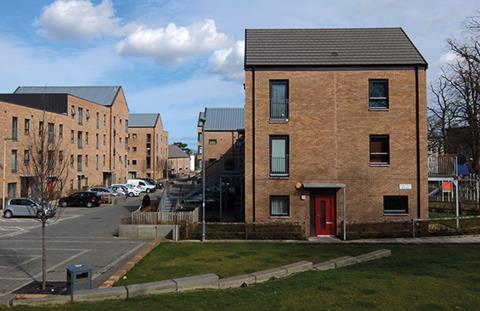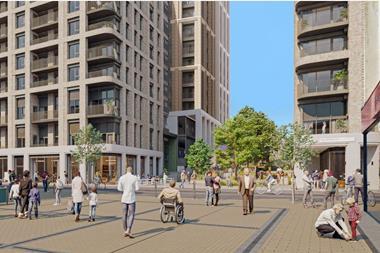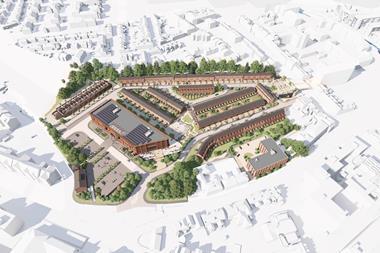Editor: The prime minister’s pledge to meet a manifesto promise to build a million new homes (300,000 per year) during this parliament is another reminder of how this government is struggling to grapple with the politics of housebuilding.

This pledge takes on a significant additional challenge, after the secretary of state’s additional announcement that buildings over 18m in height will have mandated secondary staircases for fire safety measures – which is likely to significantly compromise the viability and deliverability of schemes.
This proposed mandatory requirement would mainly hit urban areas, where increased density and height are generally more frequent considerations.
Recent research by Lambert Smith Hampton and Connells suggests a pipeline of around 123,632 homes in London alone is under threat of significant delay, based on the original implementation of new fire regulations applicable to all developments of 30m (10 storeys) or above.
If this threshold is further reduced to 18m, we can expect to see more proposed developments being affected.
Against this backdrop, housing delivery targets are starting to look wildly optimistic. While such uncertainty prevails – especially when coupled with economic uncertainty – we can only expect developers to start hitting the pause button on new and even some consented projects.
As the UK continues to head deeper into a generational housing crisis, the government should be doubling down on efforts to offer clarity to the developers and investors who are integral to solving it.
At the very least, local authorities need to maintain a dialogue with developers and work with them to optimise existing sites and potentially release more land and opportunities.
Fundamental questions remain about how this target can possibly be reached, even with the £13.5m “super-squad” funding promised to support large-scale development proposals.
Robert Reeds, associate director, Lambert Smith Hampton





























No comments yet